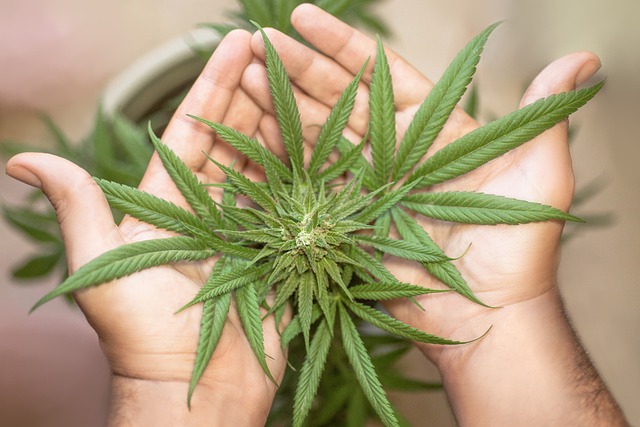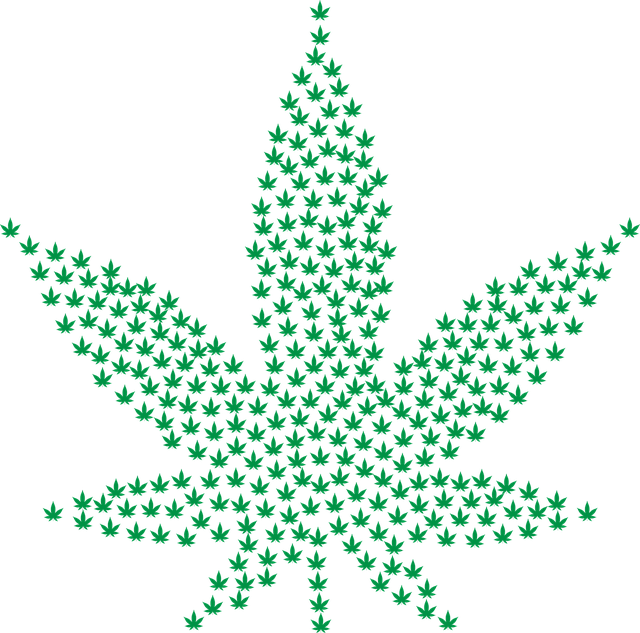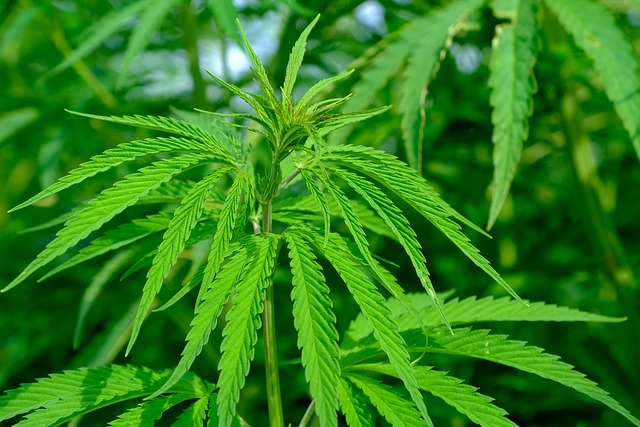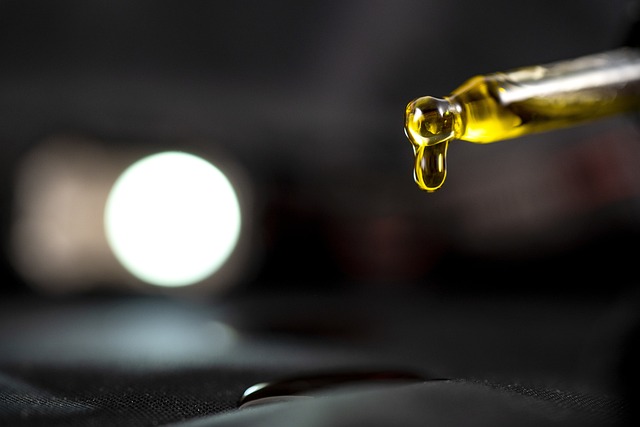2023 has seen significant advancements in Georgia's cannabis wellness sector with THCA flower emerging as a non-psychoactive alternative derived from hemp, offering potential health benefits and aligning with the state's evolving legal framework. The Georgia Hemp Farming Act of 2019 and the 2018 Farm Bill have made THCA legally permissible under specific conditions, provided its delta-9 THC content is below 0.3% on a dry weight basis. This legal distinction allows consumers aged 18 and over to explore THCA's therapeutic properties, such as anti-inflammatory effects, without the psychoactive impact of traditional cannabis products. The state's agriculture sector is increasingly interested in hemp cultivation for its economic potential and health benefits, reflecting Georgia's position at the forefront of refined cannabis policies. THCA's legal status in Georgia positions it as a significant alternative in the wellness market, with consumers encouraged to procure products responsibly from credible sources and consult healthcare professionals before incorporating them into their health regimen due to potential interactions with other treatments or conditions.
Exploring the therapeutic properties of cannabis derivatives has led to a spotlight on THCA flower, a non-psychoactive cannabinoid gaining recognition for its potential health benefits. As Georgia’s legal landscape evolves to embrace these wellness options, understanding the science behind THCA becomes paramount. This article delves into the emerging role of THCA flower and its distinct advantages over traditional cannabinoids within the state’s regulations. Discover how to integrate this natural wonder into your routine while staying informed on Georgia’s legalities surrounding its use. Join us as we unravel the benefits and implications of THCA flower, legally and responsibly.
- Unlocking Wellness: The Rise of THCA Flower in Georgia's Legal Landscape
- Understanding THCA: Potential Benefits and Scientific Insights
- THCA Flower vs. Traditional Cannabinoids: What Sets It Apart?
- How to Incorporate THCA Flower into Your Wellness Routine Legally in Georgia
- Navigating the Legalities: Everything You Need to Know About THCA in Georgia
Unlocking Wellness: The Rise of THCA Flower in Georgia's Legal Landscape

2023 has marked a pivotal point for cannabis wellness enthusiasts in Georgia, as THCA flower gains recognition and acceptance within the state’s evolving legal landscape. The non-psychoactive compound found in raw cannabis, known as tetrahydrocannabinolic acid (THCA), is drawing attention for its potential therapeutic properties without the psychoactive effects commonly associated with its counterpart, THC. As Georgia’s laws have shifted to accommodate more inclusive cannabis policies, including the legalization of CBD and low-THC oils for medical purposes, the emergence of THCA flower as a wellness product is resonating with consumers seeking natural remedies.
The rise of THCA flower in Georgia’s legal market is indicative of a broader national trend towards more nuanced cannabis policies. In Georgia specifically, the agricultural sector is beginning to explore the cultivation and processing of hemp for THCA, recognizing its potential as a lucrative crop and health supplement. With its abundant natural resources and growing interest in plant-based wellness solutions, the state is uniquely positioned to capitalize on this burgeoning industry. Consumers are increasingly turning to THCA flower as a means to support their health and wellbeing, with reports suggesting that this cannabinoid may offer benefits for pain relief, inflammation reduction, and overall health maintenance. As such, the intersection of agriculture, health, and law in Georgia is shaping up to be a fertile ground for the exploration and utilization of THCA flower’s advantages.
Understanding THCA: Potential Benefits and Scientific Insights

Cannabidiolic acid A (THCA) is a non-psychoactive cannabinoid found abundantly in hemp and marijuana plants. As research continues to unravel its potential benefits, scientists are intrigued by THCA’s therapeutic properties that may offer relief without the intoxicating effects associated with its psychoactive counterpart, THC. Preliminary studies suggest that THCA could provide various health advantages, including anti-inflammatory and neuroprotective effects. These benefits are attributed to its interaction with the body’s endocannabinoid system, which plays a crucial role in regulating pain, immune system responses, and much more.
In the context of legal considerations, it’s pertinent to note that the status of THCA-rich products varies by state within the United States. In Georgia, for instance, THCA is legal under the Georgia Hemp Farming Act of 2019, provided it contains less than 0.3% delta-9-tetrahydrocannabinol (THC) on a dry weight basis. This legislative distinction allows consumers in Georgia to access THCA products that may offer wellness benefits without the legal complexities associated with higher THC content. The interest in THCA’s legal status, especially in states like Georgia, reflects a growing demand for alternatives to traditional medical treatments, underscoring the importance of ongoing scientific research into its potential health applications.
THCA Flower vs. Traditional Cannabinoids: What Sets It Apart?

Delta-9 tetrahydrocannabinolic acid (THCA) flower is garnering attention within the cannabis community for its potential benefits and distinct characteristics compared to traditional cannabinoids like delta-9 THC. Found in raw cannabis or cannabis flowers before they are heated, THCA is non-psychoactive, meaning it does not induce the ‘high’ typically associated with THC. This key difference opens up a unique avenue for consumers seeking wellness benefits without psychoactive effects. In Georgia, where laws regarding hemp-derived compounds are evolving, THCA is legal provided it contains less than 0.3% delta-9 THC on a dry weight basis, aligning with the 2018 Farm Bill and subsequent state legislation. This legal distinction allows consumers in Georgia to explore THCA flower as an alternative to traditional cannabinoids, offering potential benefits such as anti-inflammatory properties, without the legal complexities associated with higher-THC products. Research suggests that THCA may interact with the body’s endocannabinoid system in ways that could influence pain and inflammation regulation. As a result, individuals interested in the therapeutic potential of cannabinoids have a broader range of options to consider, with THCA flower being a significant part of this expanding market.
How to Incorporate THCA Flower into Your Wellness Routine Legally in Georgia

Incorporating THCA flower into your wellness routine can be a beneficial addition for those seeking potential health benefits, with legality being a primary concern. As of my knowledge cutoff in early 2023, THCA (Tetrahydrocannabinolic Acid) is legal in Georgia under certain conditions. The Georgia state legislature passed the Hemp Farming Act, which federally legalized hemp and its derivatives, including THCA, under the 2018 Farm Bill. However, it’s crucial to differentiate between hemp-derived THCA and cannabis-derived THCA; only hemp-derived THCA is legal in Georgia. Products containing THCA derived from marijuana remain illegal.
To ensure you are adhering to the law when incorporating THCA flower into your wellness routine, it’s essential to purchase products from reputable sources that clearly label their hemp-derived origin. These products can come in various forms, such as smokable flowers, edibles, tinctures, and capsules. In Georgia, you must be 18 years or older to possess or purchase THCA flower, and it should contain no more than 0.3% delta-9 THC on a dry weight basis to comply with state and federal laws. Always verify the legality of products with up-to-date local regulations before purchasing or using them, as laws can change over time. Additionally, consult with a healthcare professional before adding any new supplement to your wellness routine to ensure it aligns with your health needs and does not interact adversely with other medications or conditions.
Navigating the Legalities: Everything You Need to Know About THCA in Georgia

Navigating the complex landscape of cannabis-related laws can be challenging, especially with the varying regulations across different states. In Georgia, the legal status of THCA, or tetrahydrocannabinolic acid, a non-psychoactive precursor to THC found in raw cannabis, has recently become a topic of interest due to its potential health benefits and the distinction it holds under state law. As of the knowledge cutoff date, THCA is not considered a controlled substance under Georgia law, which differs from its psychoactive counterpart, THC, that is legal for certain medical conditions under the Georgia Medical Cannabis Oil Program. It’s crucial for individuals to understand this distinction, as possessing or using THCA-rich products falls under different regulations compared to those for THC products. The Hemp Farming Act of 2018 federally legalized hemp and its derivatives, including THCA, which provides a framework for the interstate commerce of these products. However, Georgia’s specific laws require careful attention. For instance, while THCA is not a controlled substance, any derivative or cannabinoid that exceeds the 0.3% Delta-9 THC limit becomes subject to legal constraints as it falls under the category of marijuana, which remains illegal for recreational use in Georgia. This nuanced distinction underscores the importance of staying informed on the evolving legal landscape regarding hemp and cannabis derivatives like THCA in Georgia. Consumers should always verify the most current legal status of these products and adhere to state and local regulations when considering THCA flower benefits.
2023 has been a landmark year for wellness enthusiasts in Georgia, with the emergence of THCA (Tetrahydrocannabinolic Acid) flower as a significant player in the state’s expanding legal cannabis market. This article has delved into the multifaceted nature of THCA, highlighting its potential benefits backed by scientific research and detailing how it differs from other traditional cannabinoids. For those curious about incorporating this non-psychoactive cannabinoid into their wellness routine, the guidelines provided offer a clear path to reap its advantages within the confines of Georgia’s legal framework. As THCA continues to gain recognition for its therapeutic properties, it is clear that its role in promoting health and wellbeing is one to watch closely. Prospective users are encouraged to stay informed on the evolving regulations surrounding THCA flower to fully understand and utilize its benefits legally and responsibly in Georgia.
